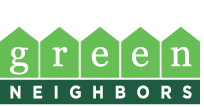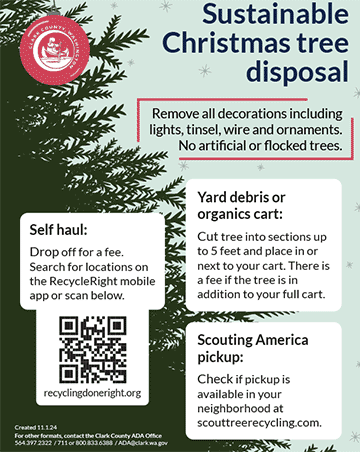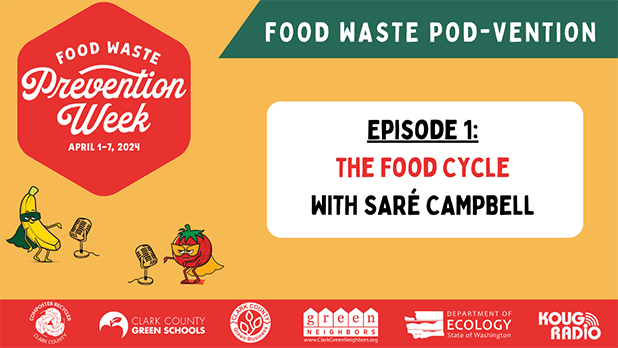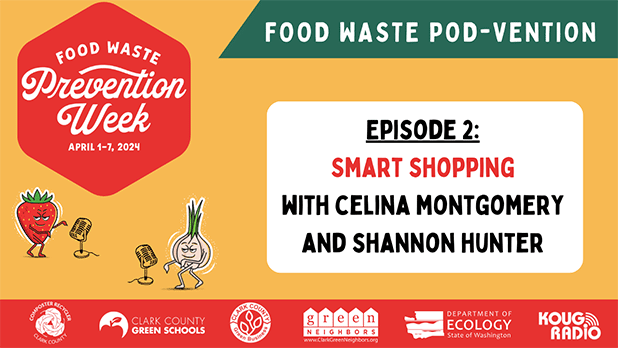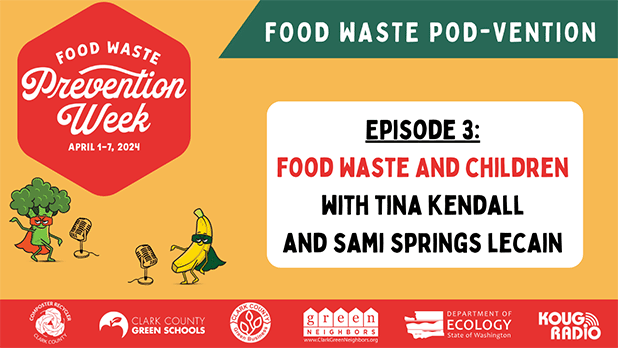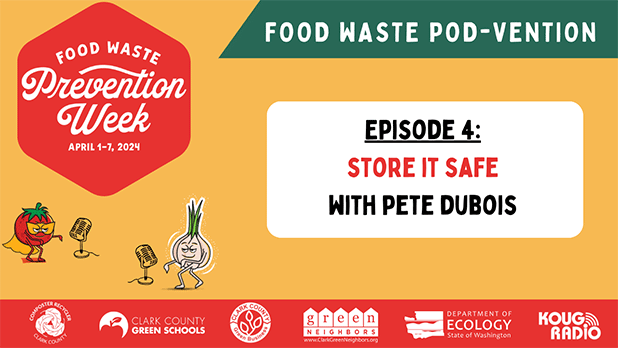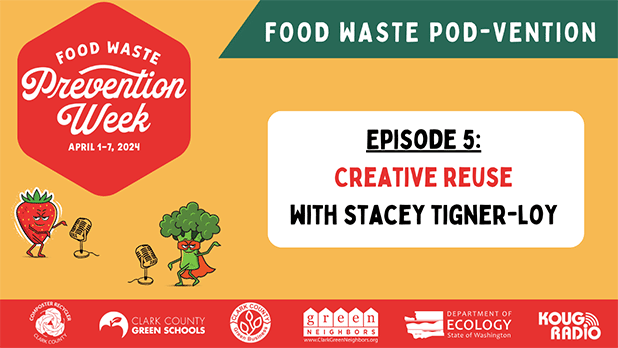The holiday season can produce a lot of waste. The United States creates 5.8 million tons more waste in December than in other months of the year. But there are ways to keep your holiday season sustainable!
Holiday waste disposal Holiday waste prevention guide Food waste podcast
Holiday tree recycling
Reduce the amount of waste you send to the landfill—recycle your natural tree to be chipped into mulch! Download this Clark County tree recycling guide to properly dispose of your tree after the holidays.
Holiday Tree Recycling Holiday Tree Recycling - Spanish
Specialty holiday waste disposal
-
Battery disposal
When batteries are improperly stored and/or disposed of they can cause serious harm. Batteries that end up in household garbage or inside of recycle carts can explode and pose a significant fire risk.
Luckily, there are now several safe Battery Drop-Off sites throughout Clark County! These convenient locations accept a variety of batteries from Clark County households, including cell phones and rechargeable batteries, which often pose the biggest safety risk when improperly disposed of.
Locate battery drop-off locations on the RecycleRight app (available on Apple and Android devices) or search the Recycling A-Z Directory.
-
Block foam
Never place block foam in your curbside recycle cart. During the transportation and sorting process the foam easily breaks apart and gets mixed with recyclable items, posing challenges at the sorting facility.
If you have block foam that you need to dispose of, check out these options:
- Drop off foam for recycling at Earth Friendly Recycling in Vancouver, WA.
Become a member of a subscription specialty recycling service to have foam and other select items collected from your doorstep for recycling. Options include RecyclePlus or Ridwell, which is for households located in limited-service areas. Place block foam in your garbage cart.
-
Air pillows and bubble wrap
It’s common to see items such as bubble wrap, air pillows, bubble mailers and plastic packaging delivered year-round to our doorstep. Despite being labeled with recycling symbols, these items cannot go in your curbside recycling cart. These items can only be recycled when taken to a plastic film collection location, otherwise they go in the garbage They can be dropped off at a local retailer for special recycling. Try searching for “plastic packaging” disposal information available on the Recycling A-Z Directory or the RecycleRight app (available on Apple and Android devices).
-
String lights
Holiday string lights should never be placed in your curbside recycle cart. When string lights end up at the transfer station in a recycling load they get tangled in equipment.They get stuck on the sorting line and cause the machinery to jam, resulting in costly repairs.
Please place string lights in the garbage can or take them to a local recycler such as Earth Friendly Recycling.

